George Pitts passed away on March 4, 2017, after battling a longterm illness.
A prolific figure in the photography world, Pitts wore multiple hats to the many people he knew: photo director, photographer, painter, educator, writer and friend. His drawings and paintings have been exhibited around the world, while his writing and photography has appeared in numerous publications, including the New York Times Magazine, Vice and The Paris Review.
From 1993-2004, Pitts worked as the founding director of photography for Vibe magazine, a platform that expanded hip-hop to the mainstream, breaking barriers and through photography, visually exposing the genre to a greater audience. “Working at Vibe changed my own life for the better, and enabled editors including myself to engage in an international discourse with a wide, disparate range of readers: the core fan base of Hip-Hop generation readers, popular music lovers, style and culture mavens, hipsters of all stripes, photography connoisseurs, serious musicologists, black culture militants, and scholars of all kinds,” Pitts told SPD in 2009
In 2004, until it folded in 2007, Pitts joined LIFE as the director of photography when the magazine was revived. During this time, he notably featured a wide range of celebrities on its cover, from Sarah Jessica Parker to Jay Z.
As an educator, Pitts was an integral part of the photo program at Parsons The New School for Design since 1998, serving as director of photographic practices and as an assistant professor during his tenure. An inspiration and mentor to countless young photographers and artists, Pitts was tirelessly hands on with the countless students he advised, including noted photographer Ryan McGinley.
Pitts’ depth, knowledge, passion and respect for art always amazed and inspired those he had conversation with. They pay tribute to him.
Ben Watts, Photographer
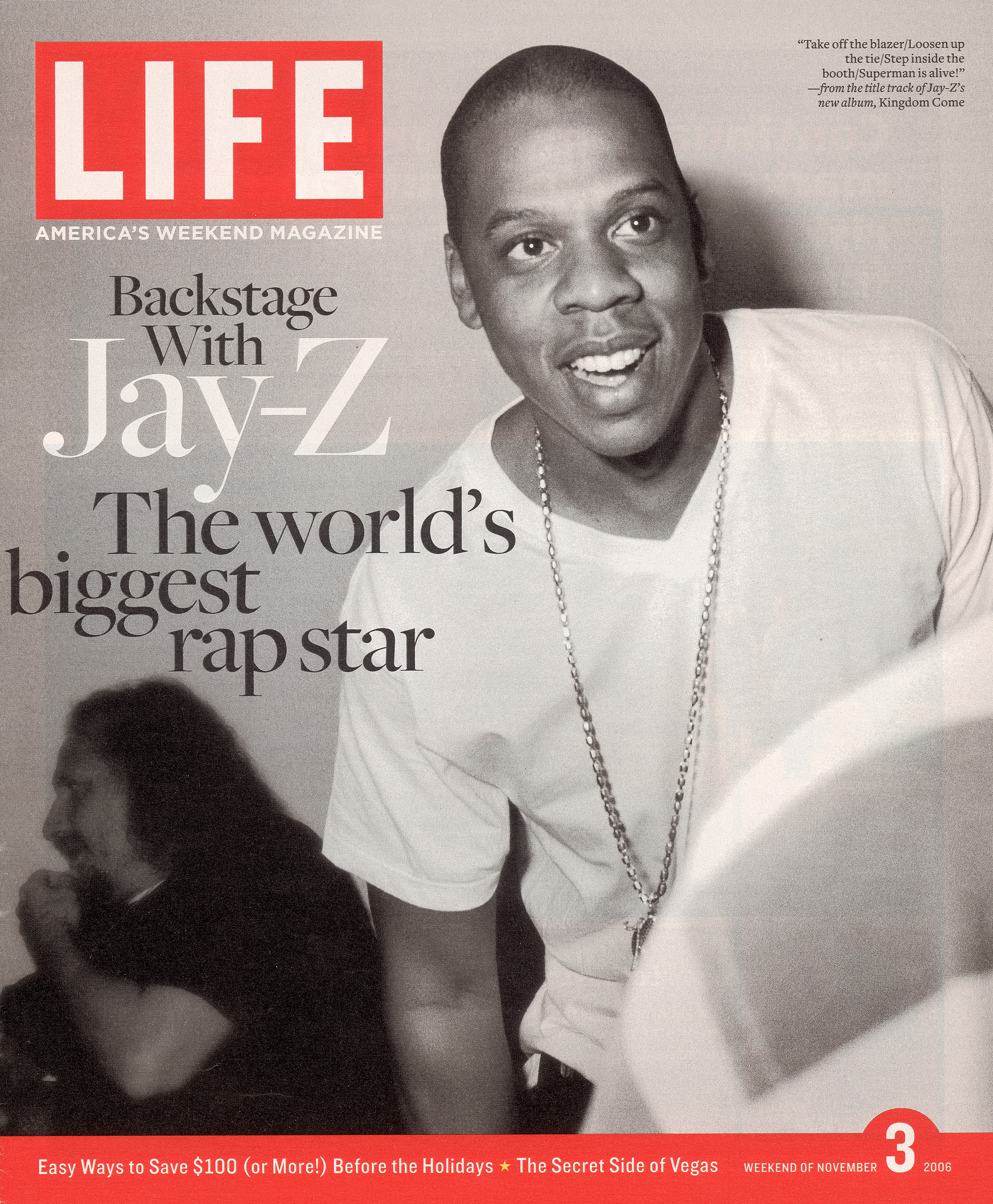
The thing with George is: he was very hands-on. Back then, it was all phone calls, one on one, George didn’t give you an assignment unless he spoke to you about it. The phone rings, it’s George. He told me, “I want you to do Jay Z,” and he says it so calmly. You’re on the other end of the phone and your head rushes, spinning around in excitement. Then he said, “I want you to go on a couple of tour dates in Europe, which involve Milan and Paris and you’re going to be on the tour bus, I want you to be a fly on the wall and take pictures.”
It was amazing, I was super stoked about it, I handed in the film and that’s one particular image I had shot at a night club in Paris after the gig. It was different, because he was smiling and it wasn’t that typical hip-hop pensive photograph, I think it showed another side to an artist that previously hadn’t necessarily been seen a lot of, so George attached to that straight away.
We had done some actually sittings for the cover while I was with Jay Z and none of those got chosen, it was this candid shot that had taken place in the nightclub. To me, it ended up being a great image that I didn’t necessarily see but George, a great photo editor, was able to pull that out and choose that as the shot. First I was happy I got the assignment, then I was happy that one got chosen to be the cover, because it was different, George had explained to me why he chose it and I thought that was just genius, then I was excited that Jay Z was actually excited about it.
Not everybody likes the pictures you take of them, but it was good to have his blessing to it too.
Richard Baker, former Art Director, Vibe and LIFE
When I first met George [in 1993] when he was a Vibe, which was a startup magazine then, the thing that struck me was how calm he was compared to everyone else. He was really calm and sort of deliberate in a certain way. The thing about George back in those days was that we would do his day to day work until 5PM when he would take whatever material he needed to edit and he would sit by his desk and maybe have like a glass of wine and just take his time going over the material. He was very deliberate, drowning out any of the craziness. His office became this sort of photo cave. It was so calm in there.
For the LIFE cover of Jay Z, George wanted him looking at the camera. He wanted those images to be full of life, to resonate with the audience somehow. He was very cognizant of that, whether it’s race or rappers or whatever, that they weren’t only one thing. I think that image had a nice kind of vulnerability, just a smile on his face. You didn’t often see Jay Z doing that. He was always cognizant of how you presented someone, especially someone who was African American. I think that was one of those choices that I quite liked. It was a kind of image that I hadn’t seen anywhere else used as a cover, it was such a departure from the usual hard street, tough image that at the time was kind of the way to go.
Elizabeth Renstrom, Photo Editor, Vice
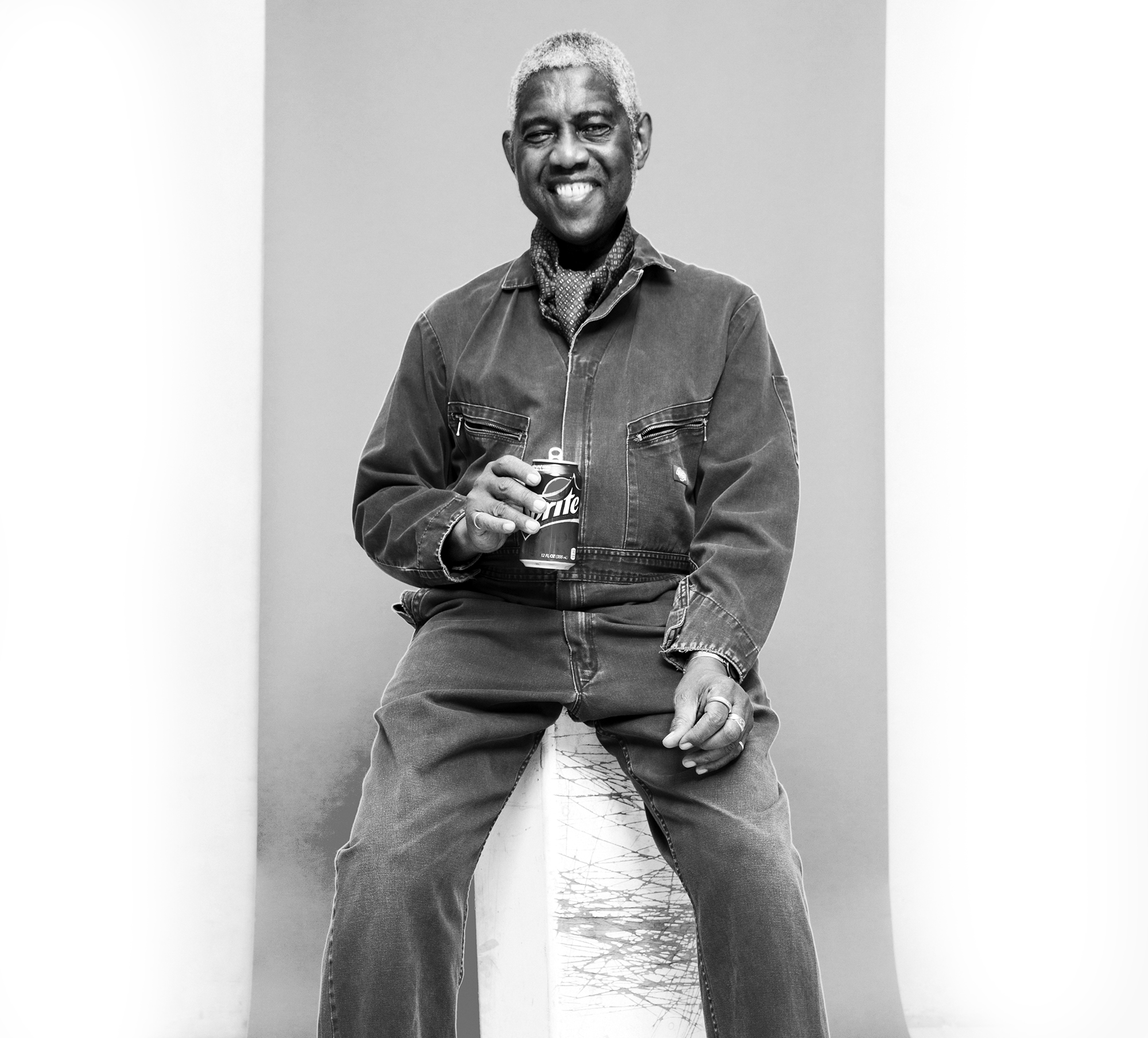
Thank you, our indelible George Pitts. I see a flurry of tributes tonight about the passing of a unanimously adored mentor and dear friend of mine. It’s difficult to cull all the things I could highlight about such a generous, genuine artist while tearing up to his favorite Roxy Music tracks (I encourage blasting Pyjamarama for him the next few days.) However, I take great comfort in remembering he told me the best working hours are 2AM onward for him.
I have never met someone with such a voracious capacity for learning and consuming art. I’ve also never met anyone who was able to make me see how fun it is to be in a constant state of soaking it all in. You meet a lot of people in this city who put on airs that immediately make you question their intent for caring about creativity. It’s a competition that can quickly make you forget why you sought out new expressions. George wasn’t like that. He saw, he read, he went, and he knew everyone—but he wasn’t doing it superficially. He wanted to understand.
This palpable desire to be taught made him an incredible teacher, which is where I first met him like many others. It’s also this curiosity that started countless people’s photo and art careers including my own. I currently have everything in my short path in this industry to thank him for, and this is after his initial lessons challenging me to make intimate and thoughtful work about myself. He believed enough in me to work for him, then went on to suggest me for my first photo editing position and be there for me for every low point and triumph since.
I wouldn’t have the passion or consciousness I try to bring to photography if it wasn’t for this one person, and it’s bonkers to think I’m one of hundreds. And wow, how wonderful it is that he is truly ever-shining. I can’t wait to continue to honor his legacy in photography and just in my life every day. I love you very much and we’re all so lucky.
Dan Winters, Photographer
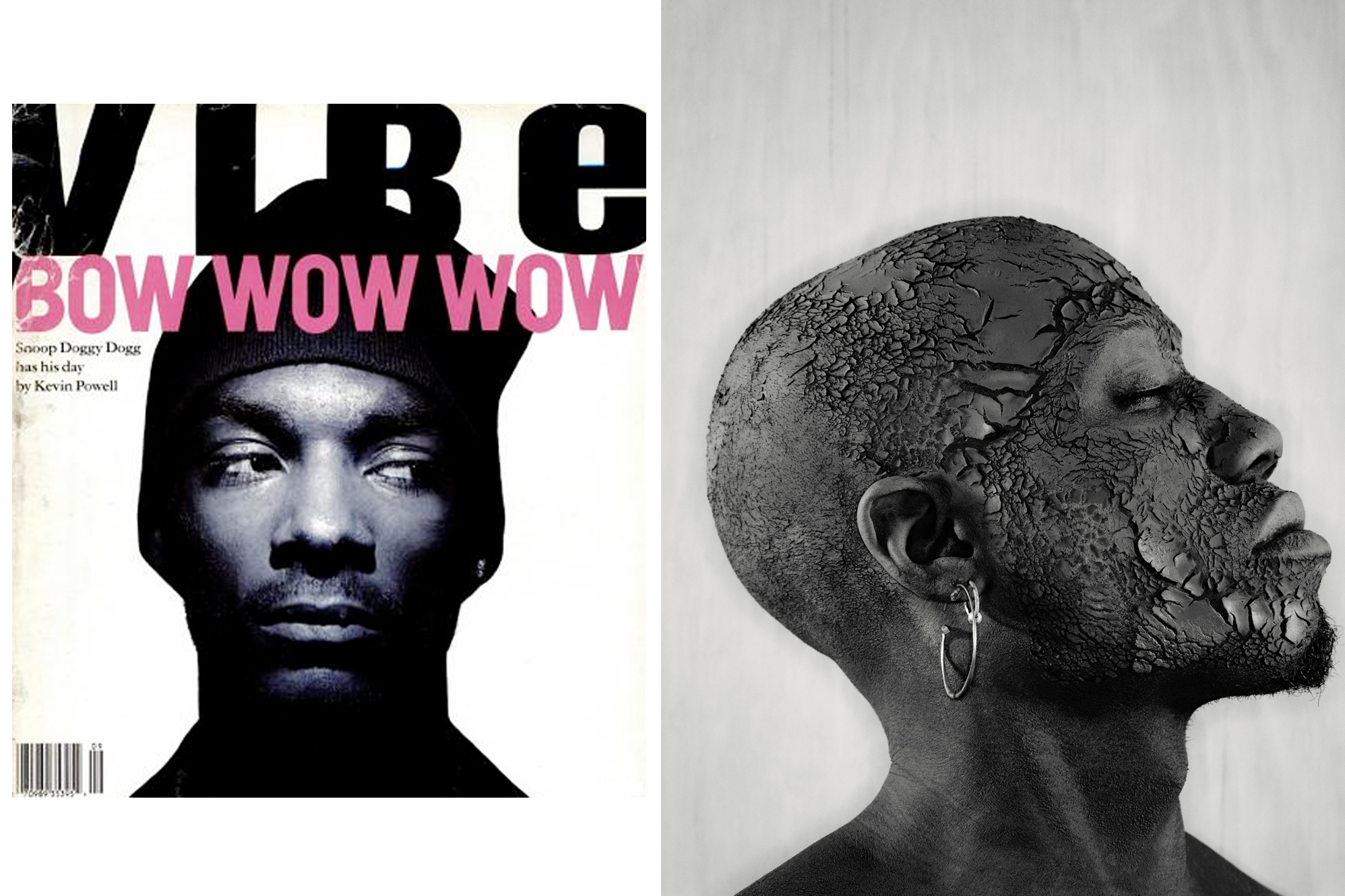
I first worked with him at Entertainment Weekly before he moved to Vibe. He asked me to shoot the very first cover of Vibe which was a portrait of a then unknown rapper named Snoop Doggy Dogg. The thing I learned from George is that it’s not possible to smile too much.
Miles Aldridge, Photographer
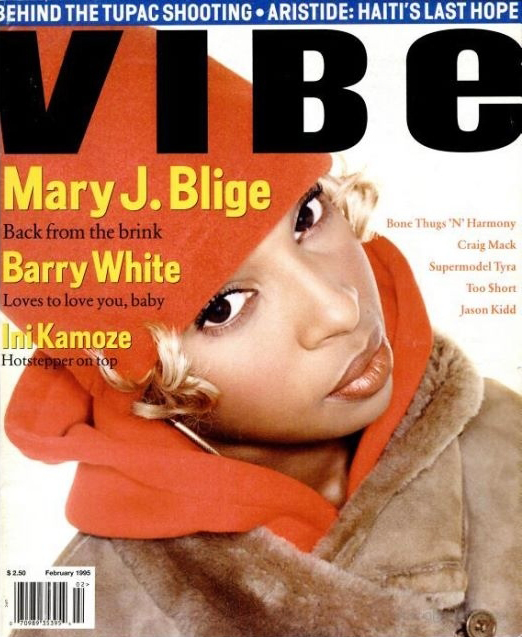
I shot Mary J. Blige for him for the cover of the February 1995 issue of Vibe. It was early days and I still knew next to nothing about lighting and cameras. I think my bluffing fooled George or maybe he was just too nice to point it out.
Gillian Laub, Photographer
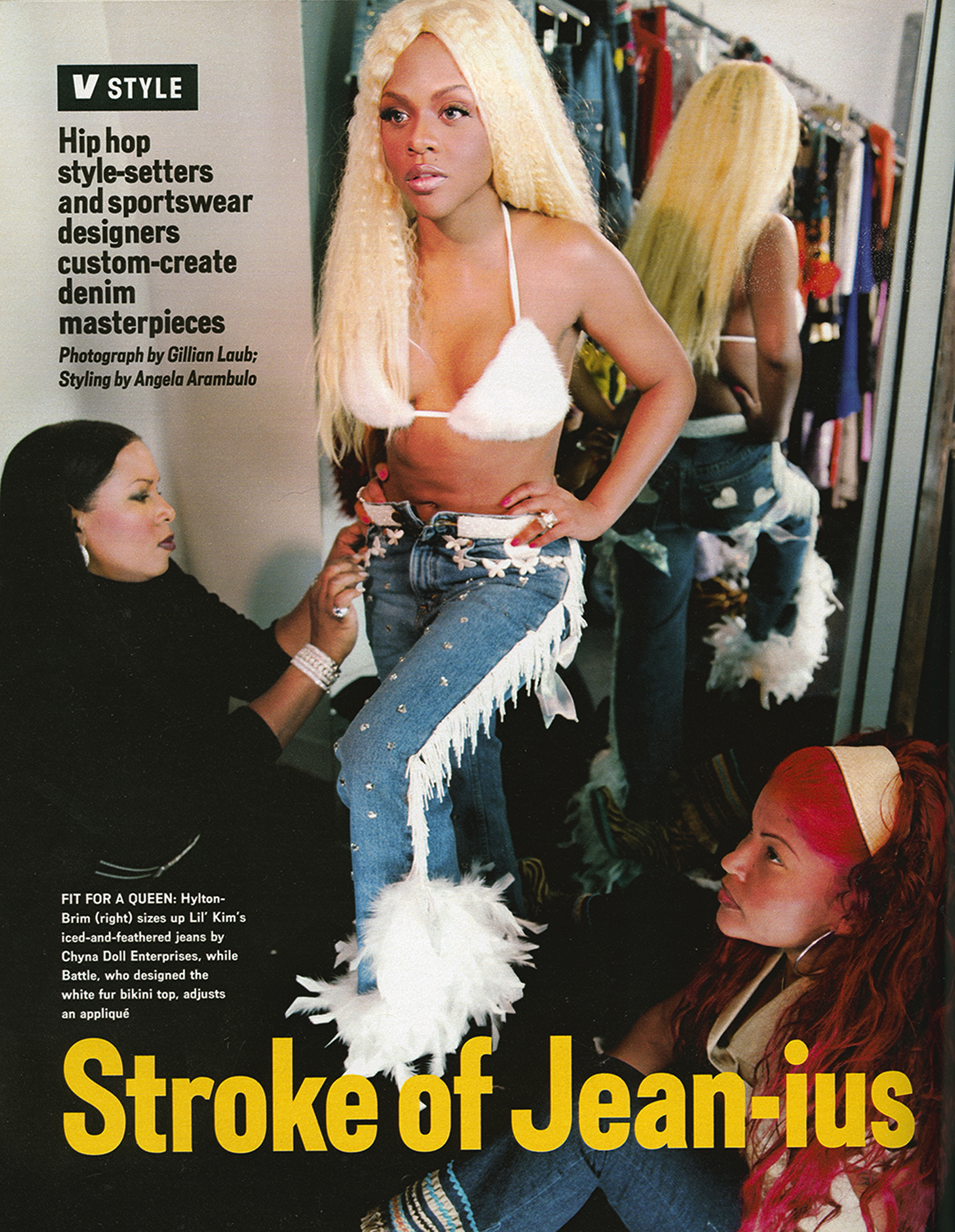
George Pitts was the very first person out of school to hire me.
I vividly remember our meeting in 1999. I remember immediately after looking at my photographs he said, “Some people photograph with only their brains as an intellectual quest, but your images come from your heart.” He was deeply and so passionately interested in people and photography.
My first shoot for Vibe, I had to recreate a scene of groupies in a hotel room. I remember being so nervous, but he let me cast my friends in the photograph. I didn’t even know how to write up a proper invoice, so he helped me with that too. The second assignment he gave me was to photograph Lil’ Kim. Again I was terrified, but he was so supportive and had such faith in young artists. I am forever grateful to him.
Erik Madigan Heck, Photographer
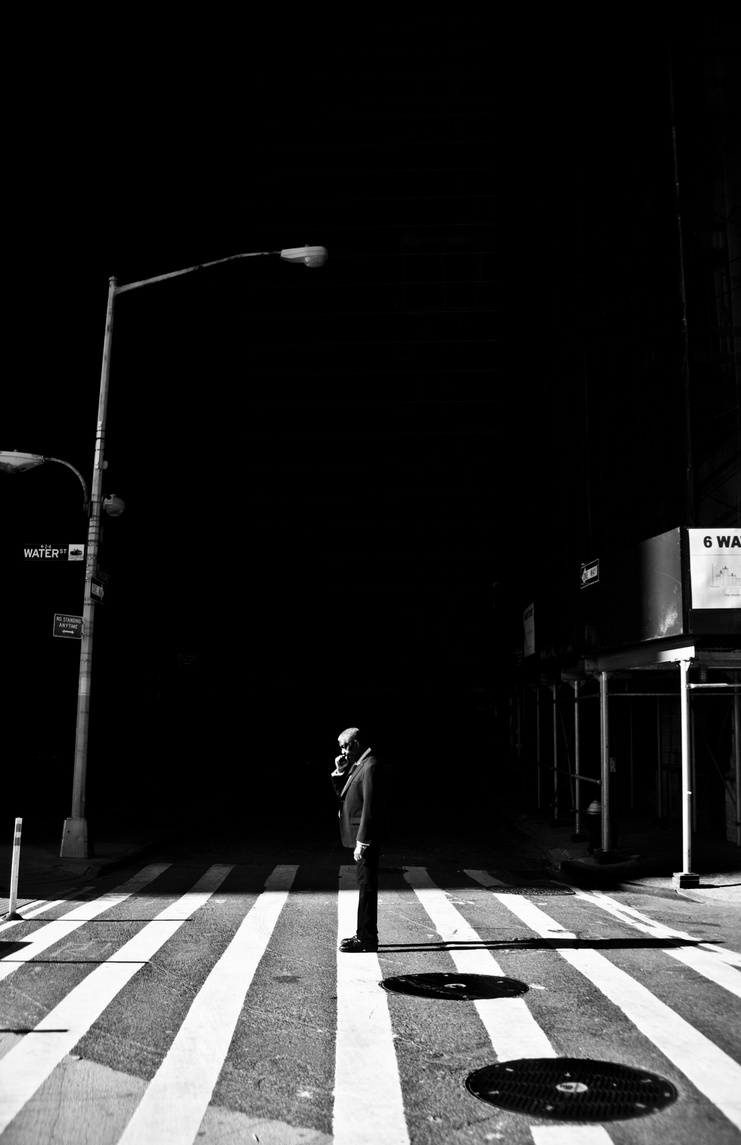
George Pitts was one of those rare people who came into my life and transformed me as a person into something much better. He gave me friendship, guidance, and wisdom. Speaking with him about photography and life was such a dream.
Losing you today is more than heartbreaking. You were one of the photography world’s rare gems, I wouldn’t be here without you, and I’m sure hundreds of other people can say that too. I’ll miss you.
Robyn Twomey, Photographer
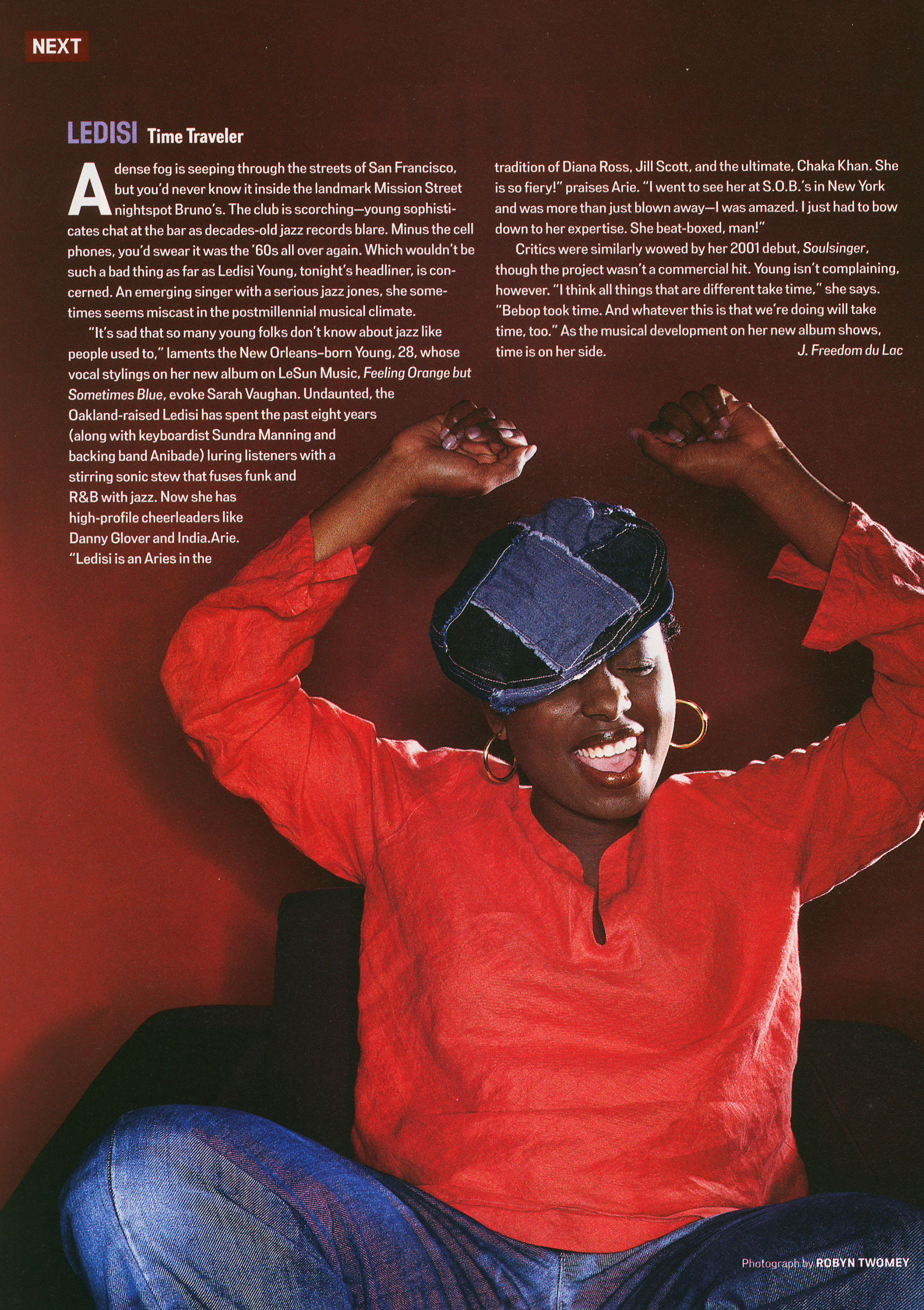
It was 15 years ago when I came to New York to show my portfolio for the first time. I waited in the Vibe magazine lobby for at least an hour when they told me George wouldn’t have time after all. I told them I wouldn’t be more than five minutes and I came all the way from California. The intern at the time, Dora Somosi, sat with me and eventually George came over. So quiet and intimidating.
He was impressed that I squirmed my way in. He took his time with every image. He told me I shoot like a man, which confused the hell out of me. He also told me my work was rare and soulful. Those words meant so much to my young ears from such a well-respected and brilliant editor in the industry. He gave me one of my first assignments, Ledisi for Vibe, and the fuel to persevere. Thank you for seeing so much GP, and for seeing me.
Caroline Smith, Editor of Photography and Visuals at First Look Media
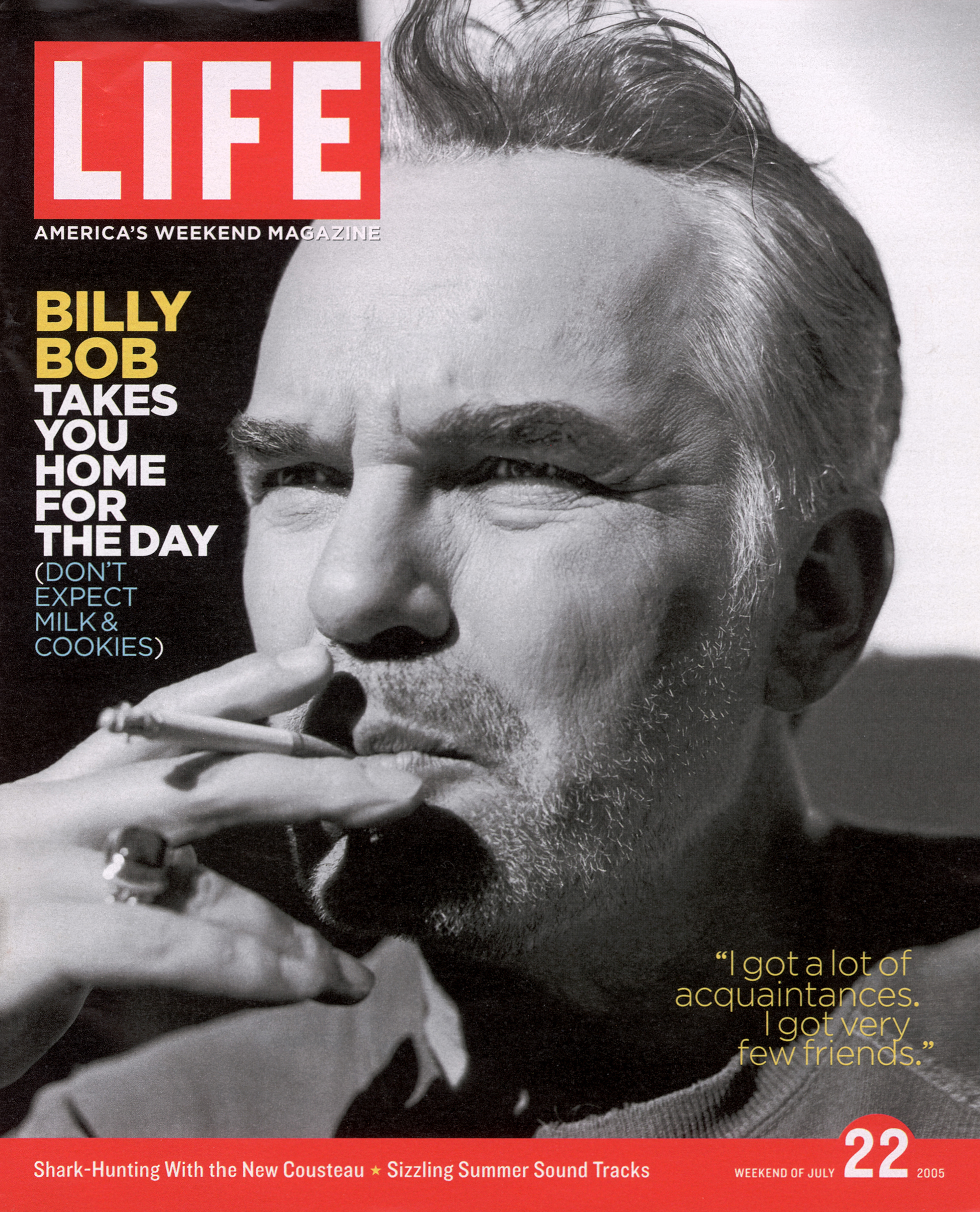
George Pitts was a legendary mentor to artists, but he was also a mentor to a few fortunate photo editors.
I was one of them. When I met him in 2004, I brought a handmade book pasted with images from photographers I admired. We paged through it talking about photography and what we liked about it. I was so green, I knew next to nothing but, I was passionate and George saw it immediately.
And that’s the special thing about him, he listened and watched and found out things about people. He pushed you to think deeper, to do things you never knew you could. I failed him many times, there was a cover that the world never saw because of me (André 3000 and Madeleine Albright together), But George never gave up, he just gave me another cover to do.
Because that’s who he was, a risk taker, a boundary pusher, he sang to his own tune—who can else can pull off an ascot and coveralls? The incredible George Pitts that’s who.
Ryan Pfluger, Photographer
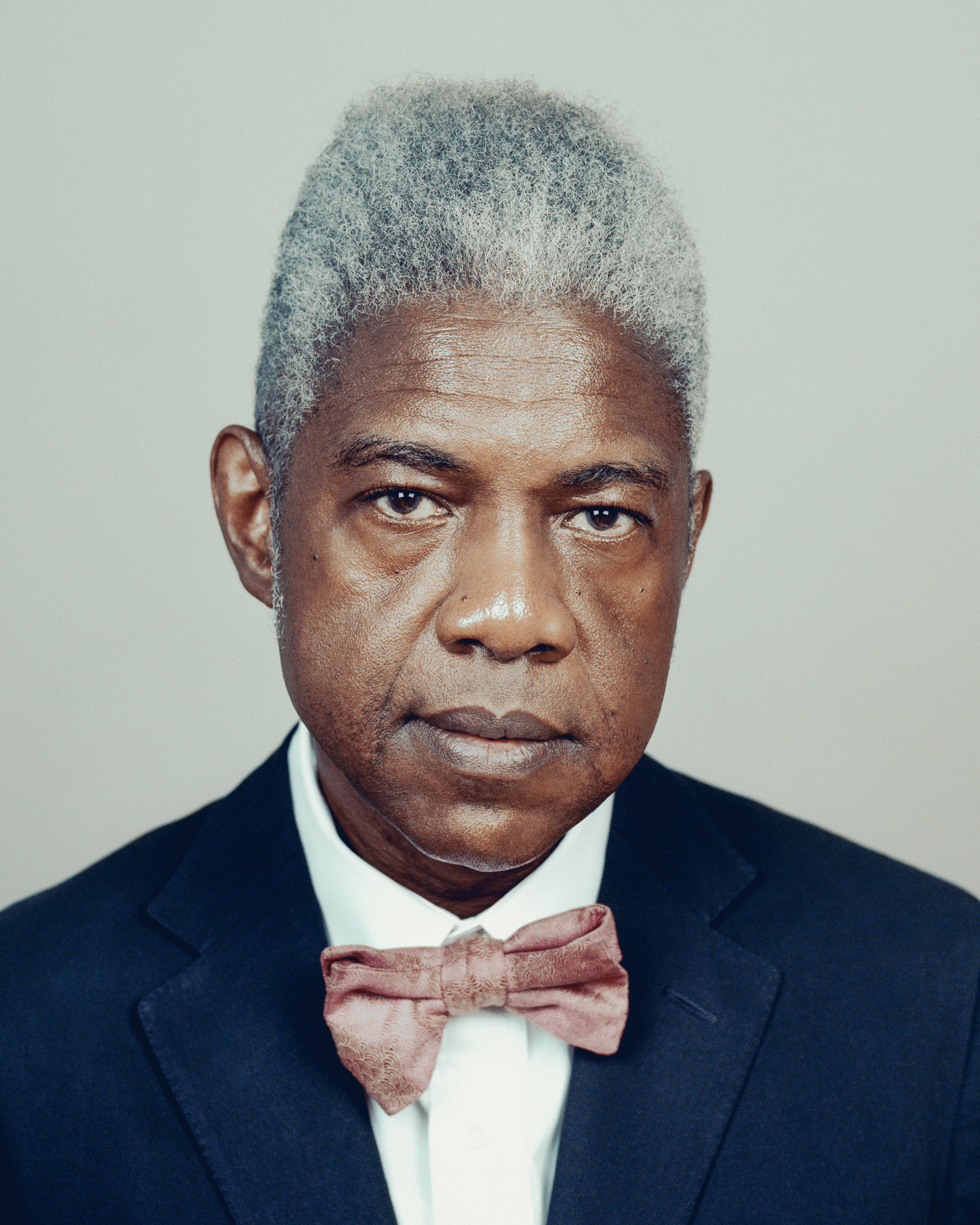
George was an incredible man, a true trailblazer and supporter of young photographers especially those who didn’t fit the mold. He supported my work, had me lecture to his classes and my portrait of him is still one of my favorites almost a decade later.
He always appreciated my sensibility for being subtle and somehow always knew the right words to make me look at my work differently. There aren’t many people in our industry that I can say truly lived, breathed and loved photography all while being an incredible human. The loss is great and I feel lucky to have had the moments I did with him. You will be greatly missed.
Alex Thebez, Instagram Community Team
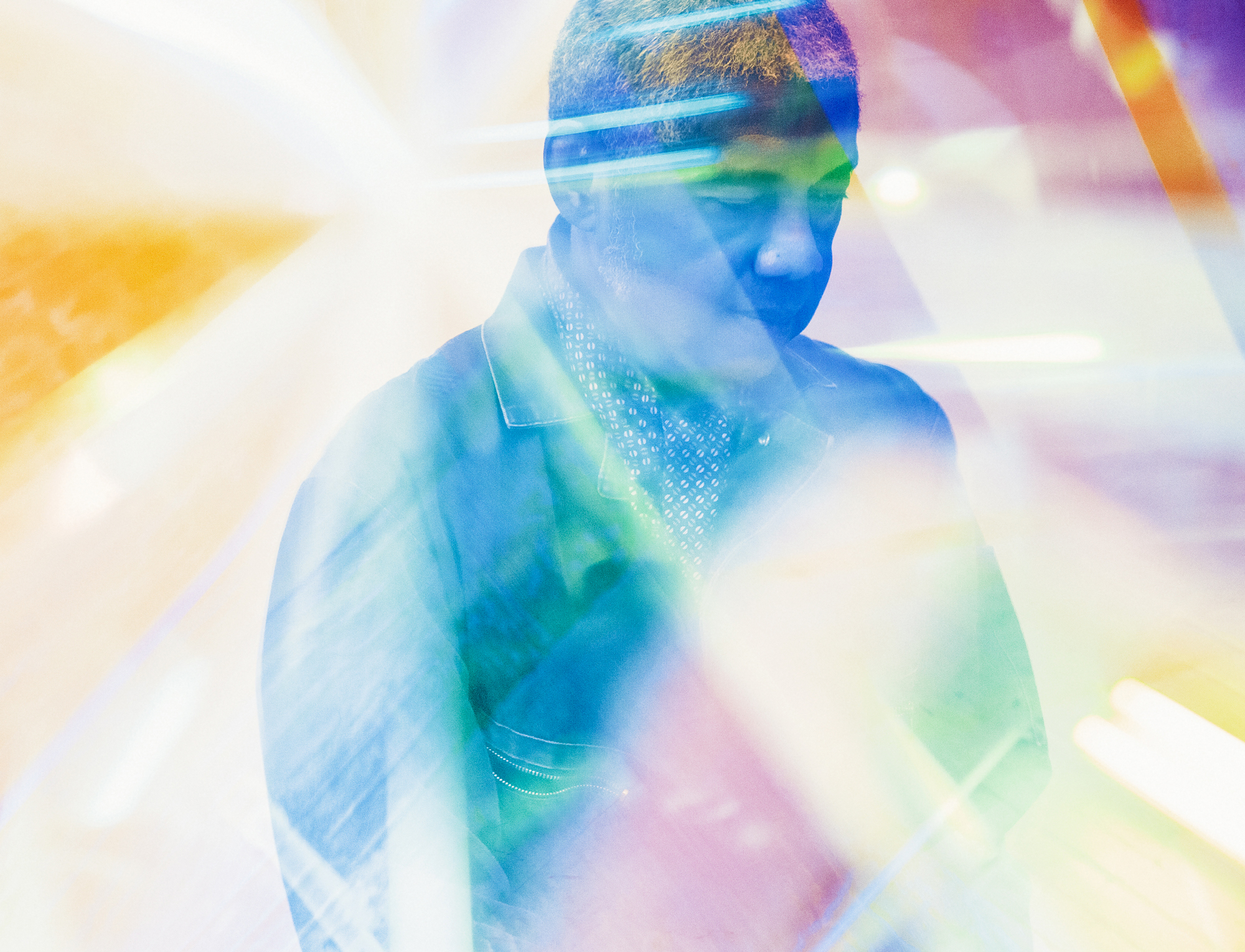
George is an embodiment of relentless curiosity and generous humility. He was always such a compassionate listener. In our time together, George had such an amazing ability to really listen to you and give you insightful feedback. Even when he may not agree with your taste or approach, George never stopped to try to see where you are coming from and who you are as an artist.
I think above all, I think George taught me that your character as a person is as substantial to your work as an artist.
He’s referred me to a few of my first opportunities coming out of school. Together with Elizabeth Renstrom, we also created an issue of TAGTAGTAG (an independent publication project), dedicated to George’s work.
Peggy Sirota, Photographer
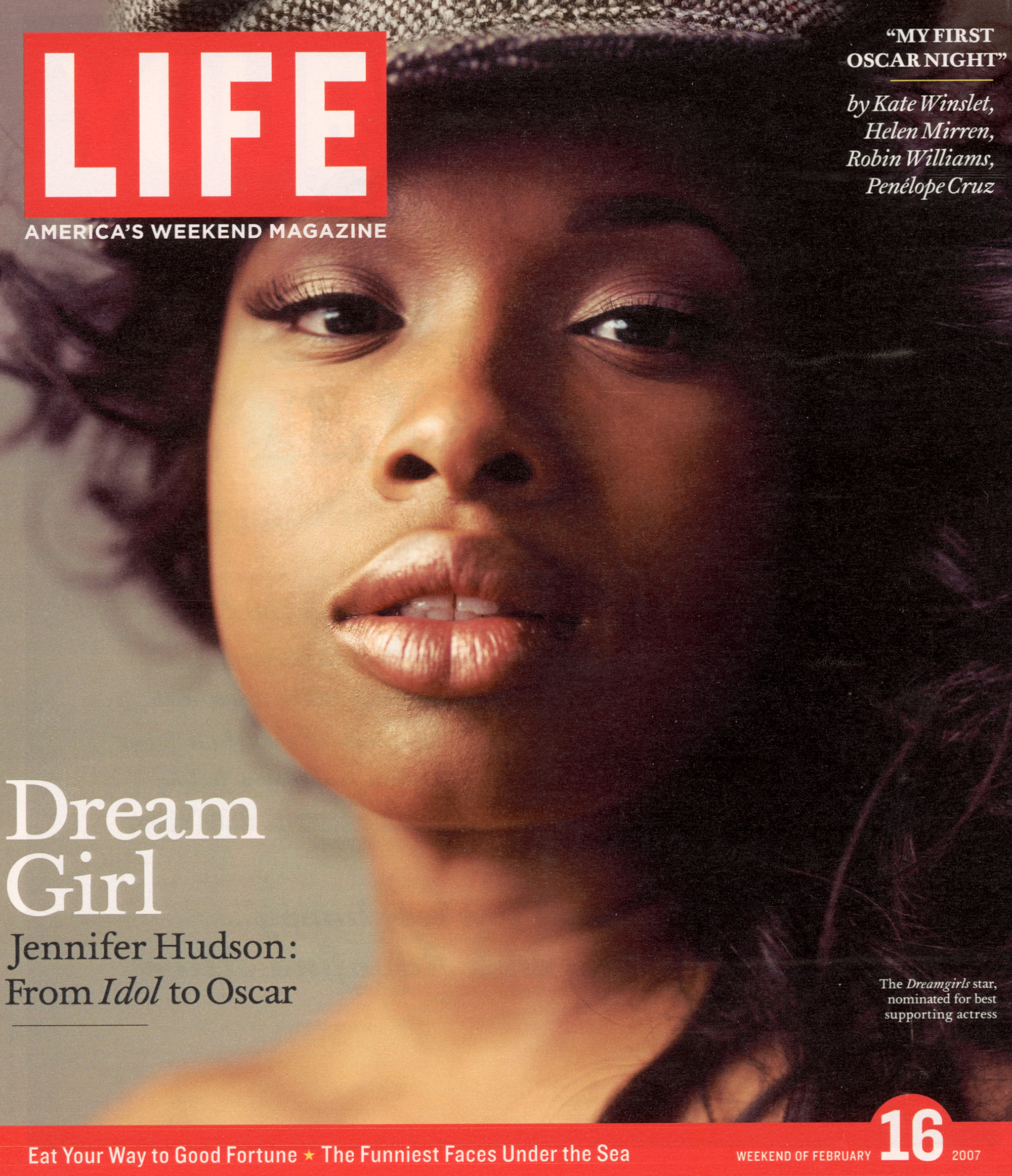
George was incredibly supportive of the photographic process. He understood that many photographers simply need the freedom to be allowed to do what they do best. I truly respect him for that. He will be missed by many.
Bill Shapiro, former editor of LIFE and founding editor of LIFE.com
“I’m surprised to hear you say that, Bill.” We’d be at the light table, looking over potential cover images for LIFE. With those words, George and I would walk back to his office where he would describe a photograph’s “larger context” and point out those things the photographer intentionally left out of the frame.
I learned much from George, and not just about how to read a photograph but also about trip-hop and Leonard Cohen and poetry.
LIFE went out to 13 million readers —a big audience—but George wasn’t afraid to trust a young photographer with a key assignment and he wasn’t afraid to challenge our Middle America readers with a photograph whose power he knew would be lasting.
Jeff Riedel, Photographer
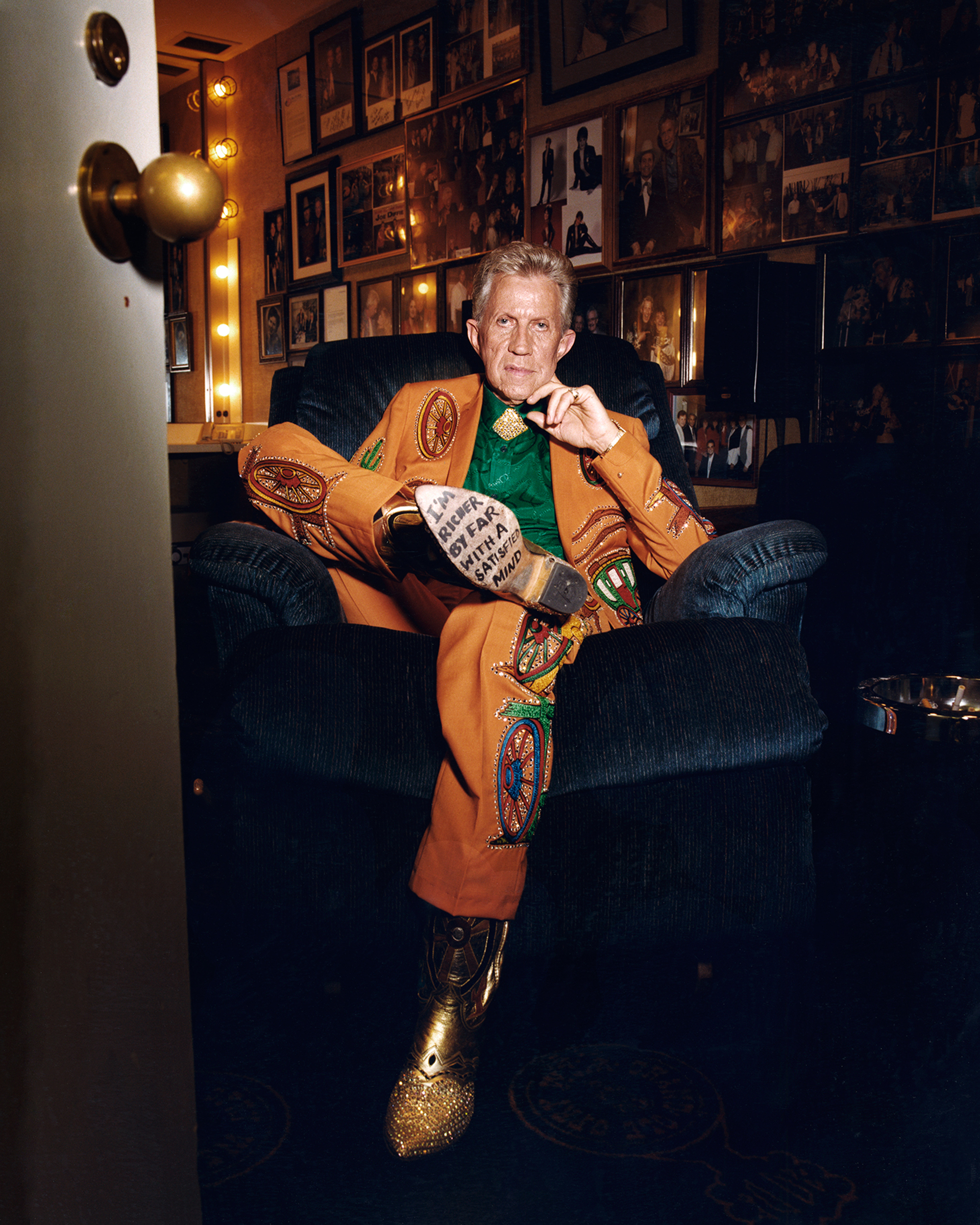
I’ve haven’t spoken with George in several years though he has often entered my thoughts. It’s difficult to say in just a few words the impact that George Pitts had on my life as an emerging photographer and the great respect that I had for the man. I met him while he was the photography director of Vibe magazine. It was the late 90s and it was George and Dora Somosi (another amazing photography editor) running the photo department and the magazine looked just so amazing. Vibe, founded by Quincy Jones was the official magazine for the exploding hip hop musical and cultural scene, and what George brought to its pages was (my thinking at the time) an almost unbefitting level of sophistication and intelligence. He is, in my opinion the main reason that the magazine had the impact and garnered the praise and awards that it did in the publishing industry at the time.
My first meeting with George will forever stand out in my mind. I’d just come back from a trip to Nashville shooting a personal project of some of the older and still-living honkey tonk music legends – old stars of the Grand Ole Opry dressed in their original Nudie suits. I was not expecting the photography director of a hip hop magazine to respond positively to a series of photographs of a bunch of grizzly old country stars, but decided to show them to him anyway. I immediately discovered that I was having a conversation with a deeply passionate, insightful, intelligent and scholarly lover of photography. He really liked the pictures and began talking to me about music, lots of music – music spanning numerous genres including the “honkey tonk” music of George Jones, Johnny Cash, Buck Owens and others that I had just been out photographing. He had opinions about it all. His curiosity knew no bounds when it came to talking about subjects that inspired the creation of photographs. He always wanted to know more and talk about more – more of what it was that compelled one to approach certain subject matters and make pictures.
He gave me my very first magazine assignment soon after. It was photographing the band Tony! Toni! Toné! George was starting to delve seriously into his own photography. Around that time I lent him my old 1950s Mamiya twin lens reflex camera that my grandad had given me. He began in earnest his portraits of women on what was a square 2 and 1/4 inch format – and for reasons that I can only guess, the format somehow worked out well for his aesthetic purposes and he committed himself to it as his camera of choice from then on.
George chose to believe in me as a photographer and artist as I began to work and develop a style in the late 90s and early 2000s, and constantly pushed and challenged me to think and consider everything it was that I was doing. His intellect and love and respect of photography was a transforming and enduring influence on my life. I am deeply saddened by the loss of such an incredible and generous human being, an old friend and mentor. He will be very missed.
Andrea Modica, Photographer
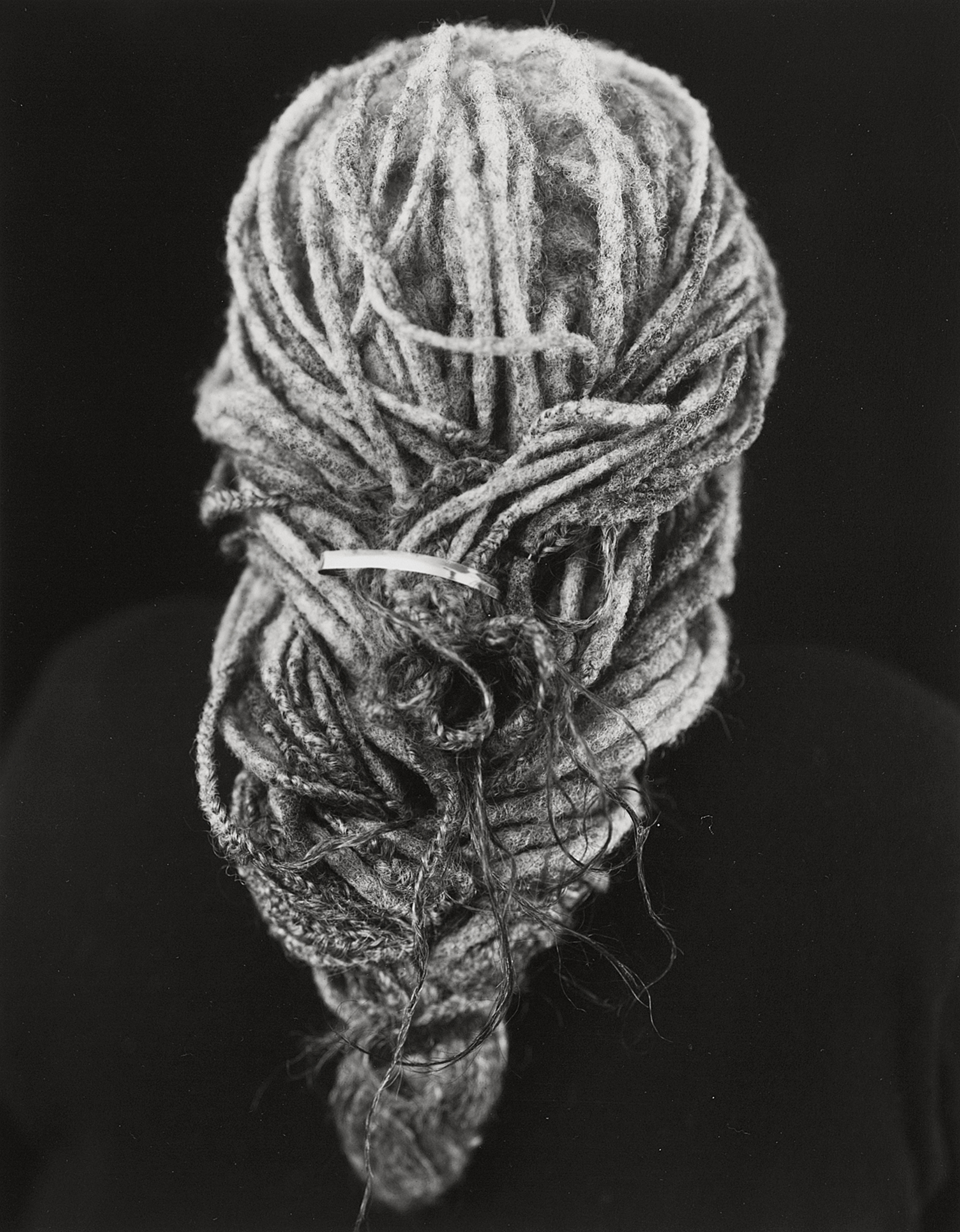
I first heard that fabulous voice via a message on my answering machine in the mid-1990s, when he invited me to photograph Toni Morrison for Vibe. I worked for George many times during the following years, each job beginning with a long phone conversation. During those talks and negotiations George was as inquisitive as he was instructive, his voice reflecting his intense curiosity, deep bemusement and profound wit. Offbeat and quick to laugh, encouraging and passionate, George Pitts was an original. He will remain truly inimitable and he will be dearly missed.
Greg Miller, Photographer

I had the pleasure of working for George in the early days of Vibe as well as LIFE Magazine. I often think of his supportive words consciously and unconsciously when I am photographing. George made you feel smart even though it was clear he had the upper hand. He was kind, dapper, funny and completely present. He celebrated photographers’ artistic visions and always encouraged us to photograph from that place only we could go and not compromise that vision simply because we didn’t think it would fit in the magazine.
I remember a big story for LIFE in 2005, a photo essay on County Fairs, I pitched to him. I photographed in different cities as I traveled around the country. He encouraged me to photograph what I was interested in at Fairs–not the rides, animals or cotton candy–but the weirdness, isolated couples and awkward families. It was one of the greatest learning experiences of my life and yielded one of my most iconic images.
His life is a reminder that it is not our accomplishments that matter but the community we leave behind. I am so thankful to have known and worked with George.
Colin Stearns, Program Director for BFA Photo, Parsons
He was a true renaissance man in so many ways. He had a painting background that he spoke about consistently in the way that he spoke about photographs. He was also extremely motived by poetry, and it was never a long conversation with him when he didn’t talk about his experiences in the music world and what a fan of film that he was. These things would just sort of litter all of his conversations. Any time you spoke to him about almost anything, he would have this way of weaving back and forth between the painting field, poetry field, film world and it came all back to photography at some point.
Correction: A previous version of this article incorrectly stated the date of George Pitts’ death. It was March 4, not March 3.
More Must-Reads from TIME
- Why Trump’s Message Worked on Latino Men
- What Trump’s Win Could Mean for Housing
- The 100 Must-Read Books of 2024
- Sleep Doctors Share the 1 Tip That’s Changed Their Lives
- Column: Let’s Bring Back Romance
- What It’s Like to Have Long COVID As a Kid
- FX’s Say Nothing Is the Must-Watch Political Thriller of 2024
- Merle Bombardieri Is Helping People Make the Baby Decision
Contact us at letters@time.com